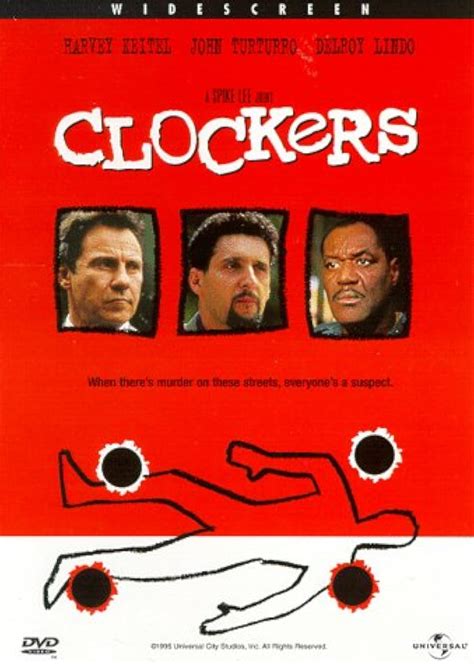Clockers

Description:
Clockers is a 1995 crime drama film directed by Spike Lee, based on the novel by Richard Price. The story revolves around a young street-level drug dealer who becomes entangled in a murder investigation. As tensions rise in his Brooklyn neighborhood, the protagonist must navigate the dangerous world of drugs and violence while grappling with his own moral compass. The film explores themes of race, poverty, and the cyclical nature of violence in urban communities.Keywords:
Urban Life, Drug Trade, Moral Dilemmas, Violence, CommunityIs Clockers a good movie?
"Clockers," directed by Spike Lee and based on Richard Price's novel, is generally considered a good movie, praised for its raw and realistic portrayal of drug dealing in urban America. The film explores complex themes of choice, morality, and the social environment that influences crime. It features strong performances, particularly by Mekhi Phifer and Harrelson, and is noted for its gritty cinematography. While it may not appeal to everyone due to its intense subject matter, it is often regarded as a significant work in 90s cinema and a thoughtful commentary on societal issues.
Who was the killer in Clockers?
In the movie "Clockers," the killer is revealed to be Strike's (played by Mekhi Phifer) friend, who is involved in the drug trade. The plot centers around the investigation of a murder in a drug-ridden neighborhood, where Strike, a young drug dealer, becomes entangled in the events. The complexity of the characters and their circumstances highlights the struggles within the community. Ultimately, the film explores themes of violence, choices, and the impact of the drug trade on individuals and their relationships.
What is the book "Clockers" about?
"Clockers" is a novel by Richard Price that explores the lives of drug dealers and users in a fictional urban setting. The story revolves around Strike, a young drug dealer, and his struggles with the moral implications of his lifestyle. It delves into the complexities of crime, poverty, and the choices individuals make in their environments. The narrative also follows an investigating detective, detailing the challenges of law enforcement in combating drug-related crime. The book provides a gritty, realistic portrayal of urban life and its societal issues.
What happened at the end of Clockers?
At the end of "Clockers," the main character, Strike, faces a pivotal choice after being caught in the cycle of violence and drug dealing. He ultimately decides to take responsibility for his actions. Strike turns himself in to the police, having realized the destructive path he was on and the impact it had on his life and those around him. The film concludes with a sense of ambiguity regarding redemption, as Strike's decision highlights the complexities of life in a drug-infested environment and the struggle for personal change.
Explore More Categories: